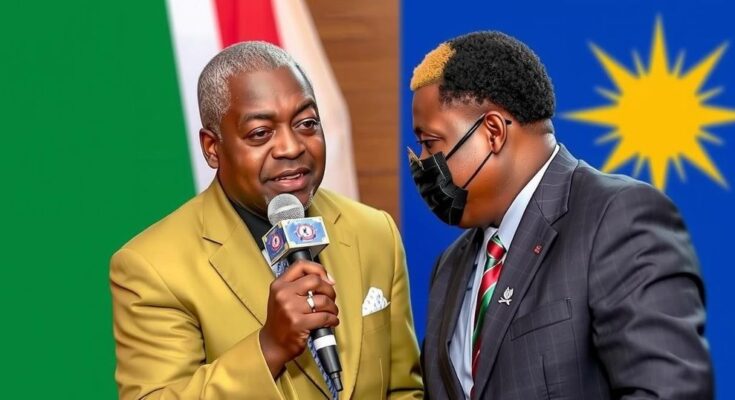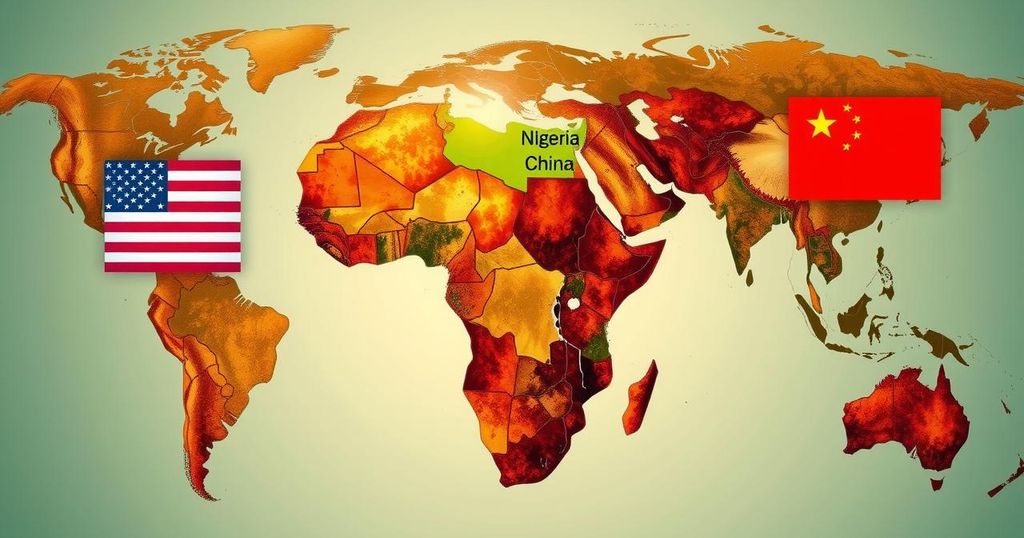Netumbo Nandi-Ndaitwah of SWAPO has won Namibia’s presidential election with 57.31% of the vote. Opposition candidate Panduleni Itula of IPC received 25.5%. The election faced significant logistical issues, prompting IPC to reject the results, alleging electoral irregularities. Nandi-Ndaitwah is now the first woman to lead Namibia since independence in 1990.
Netumbo Nandi-Ndaitwah, the Vice-President of Namibia and a candidate from the ruling SWAPO party, has emerged victorious in the presidential elections, securing 57.31 percent of the votes, according to the election commission’s announcement on Tuesday. The leading opposition candidate, Panduleni Itula from the Independent Patriots for Change (IPC), garnered 25.5 percent of the votes, as detailed in the results which were released following a week of extended polling. Nandi-Ndaitwah, at the age of 72, has made history as the first female president of Namibia, a country rich in mineral resources, and which has been under the governance of the SWAPO since its independence in 1990. The IPC has publicly declared its refusal to accept the electoral outcomes, citing numerous irregularities surrounding the election process. Moreover, the election, held on November 27, experienced complications, including logistical issues such as a ballot paper shortage, resulting in extensive wait times for voters, with some having to endure queues of up to 12 hours before abandoning their attempts to vote.
The political landscape in Namibia has been predominantly shaped by the South West Africa People’s Organisation (SWAPO) since the country’s independence from South African rule in 1990. The recent presidential election reflects a growing contest between SWAPO and rising opposition parties, particularly the Independent Patriots for Change (IPC). Concerns over electoral integrity have become prevalent, particularly in light of the challenges encountered during voting, which have raised questions regarding the reliability and transparency of the electoral process. The significance of Netumbo Nandi-Ndaitwah’s victory lies not only in her historic ascent as the first female leader but also in the broader implications for governance and gender representation in Namibia.
In conclusion, Netumbo Nandi-Ndaitwah’s victory in the Namibian presidential elections marks a significant milestone in the country’s political history, given her status as the first woman to hold this position. However, the refusal of the main opposition party, IPC, to acknowledge the results due to concerns over electoral irregularities casts a shadow over the legitimacy of the electoral process. The logistical challenges faced during the elections further underline the need for reforms to ensure a smoother and more transparent voting experience in the future.
Original Source: www.barrons.com




